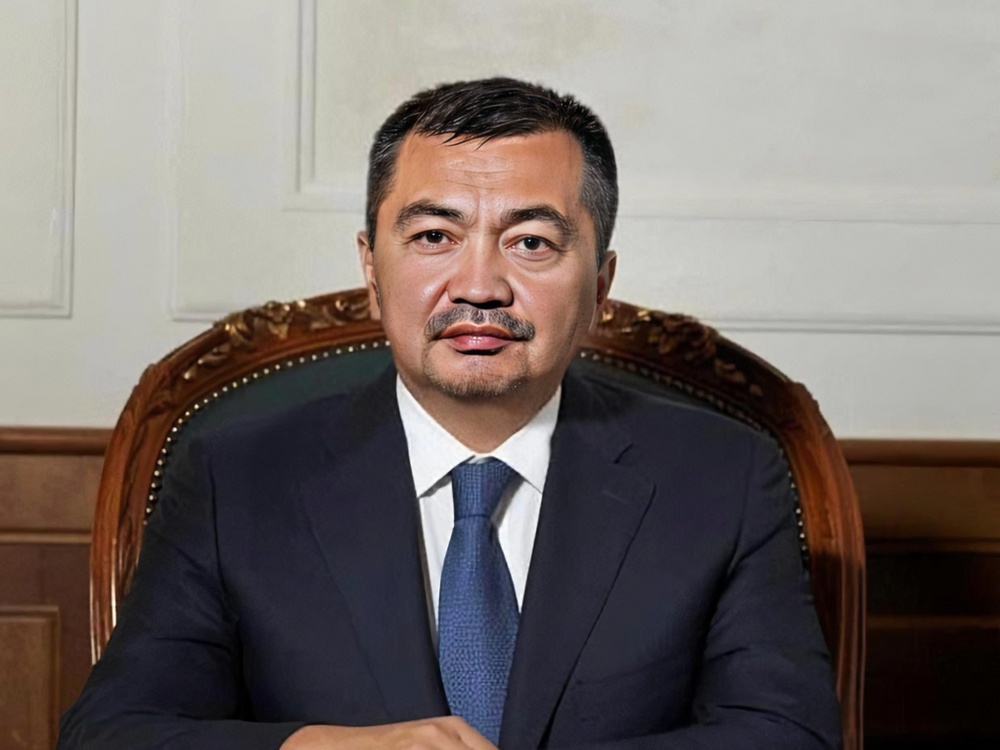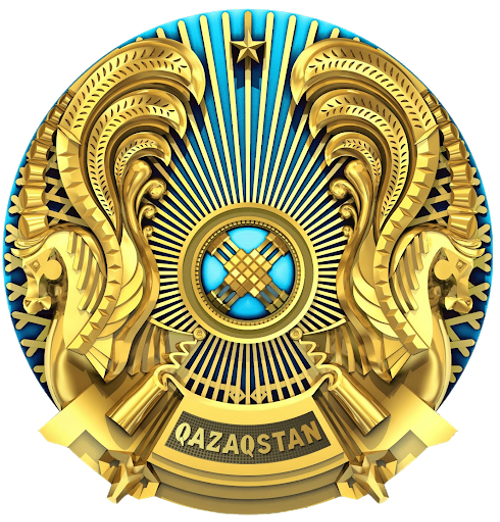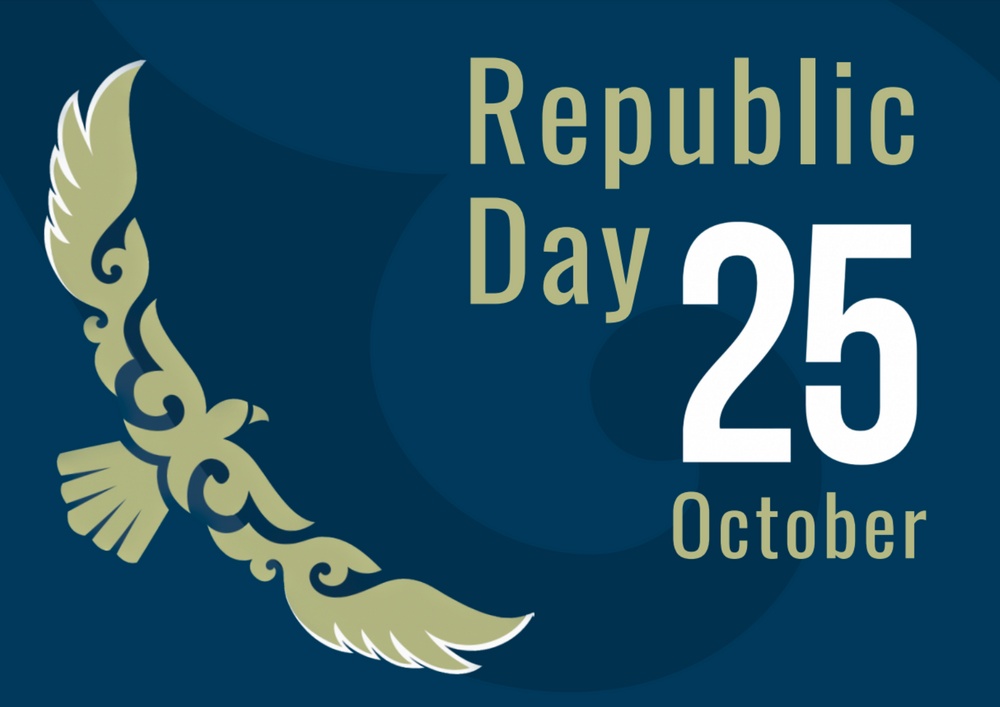Kazakhstan's Republic Day: Celebrating Progress and Journey to Global Prominence
 Ambassador of Kazakhstan to Sweden H.E. Mr. Sergey Nurtayev
Ambassador of Kazakhstan to Sweden H.E. Mr. Sergey NurtayevEvery October 25, Kazakhstan commemorates Republic Day, a day of unique significance, as it marks the pivotal moment in 1991 when Kazakhstan declared its sovereignty. This declaration was more than a political statement; it signalled the nation's commitment to its people to carve out a destiny reflecting their aspirations and cultural identity.
Today, Kazakhstan stands tall as the biggest economy in Central Asia. Since gaining sovereignty, the nation has witnessed a meteoric rise in living standards, with its citizens experiencing improved health, education, and overall quality of life.
In the realm of domestic politics, Kazakhstan's journey since gaining sovereignty is nothing short of remarkable. Establishing a stable republic in a region historically characterized by empires and nomadic confederations was no minor achievement. The nation swiftly adopted a constitution, delineated the roles of president and parliament, and has since conducted several rounds of competitive elections. The emphasis has always been on unity in diversity, ensuring that its myriad ethnic groups find voice and representation in the nation's political fabric.
The last few years have been especially transformative for Kazakhstan. The country has achieved substantial progress in its democratization journey, exemplified by the implementation of wide-ranging political reforms, including constitutional amendments following last year’s national referendum. These changes have enhanced the democratic fabric of the nation by enabling diverse political perspectives and by redistributing power in favour of the elected legislative body. In line with constitutional amendments, the country witnessed the direct election of rural mayors and the adoption of a proportional-majoritarian model in the last parliamentary election. This marked a significant shift in the electoral landscape of Kazakhstan, allowing for the substantial participation of independent and self-nominated candidates in the election, an occurrence that is truly unprecedented in the nation's history.
Kazakhstan’s commitment to progress is also evident in the country’s economic story, one that has earned international acclaim. With vast reserves of oil, gas, minerals, and metals, the nation effectively leveraged its natural wealth. Strategic infrastructural developments, enticing foreign investments, and diversification initiatives propelled Kazakhstan from an agrarian landscape to become a leading economic powerhouse. The decision to establish Astana as the capital in 1997 symbolized this forward-looking vision, melding modern architectural wonders with the indomitable spirit of the steppes.
More recently, Kazakhstan has become the top investment destination in the region and a major financial centre. This is a result of concrete reforms and initiatives over the years, including the establishment of the Astana International Financial Centre. Yet the journey is far from over. In his latest state of the nation address on September 1, the country’s President, Kassym-Jomart Tokayev, proposed additional economic reforms with the aim of promoting fairness, inclusiveness, and pragmatism. He outlined objectives to diversify the economy, strengthening industry, and targeting stable economic growth of 6-7 percent. The country’s new economic plan provides a clear vision for the country’s development over the next three years and will have broader ramifications for regional development and cooperation. These economic transformations, inspired by the president’s vision of a Just Kazakhstan, aim to contribute to the creation of a more balanced, sustainable, and globally integrated economy.
On the international stage, Kazakhstan has etched a unique identity through its astute diplomatic endeavours. By championing nuclear disarmament—evidenced by the closure of the Semipalatinsk nuclear test site and the relinquishing of its nuclear arsenal after the country gained independence—the nation positioned itself as a global advocate for peace. It initiated the Conference on Interaction and Confidence Building Measures in Asia in 1992, a multilateral forum aimed at promoting peace, stability, and cooperation in the Asian region. Additionally, Kazakhstan has fostered regional cooperation, playing significant roles in platforms such as the Organization for Security and Co-operation in Europe (OSCE), the Shanghai Cooperation Organization, and the Eurasian Economic Union. By ensuring positive relations with major powers like Russia, China, the European Union, and the US, Kazakhstan manifests as a bridge between East and West, offering a harmonizing narrative in an often-divided world.
Sweden is an important partner of Kazakhstan in the North European region and EU. Kazakhstan is demonstrating an increased interest in Sweden and expresses its readiness to expand bilateral cooperation on the entire spectrum of interaction. Trade and economic cooperation between Kazakhstan and Sweden covers a wide range of interaction.
Currently, about 50 Swedish companies are represented in Kazakhstan. The activity of these companies contributes to a stable inflow of direct investments from Sweden into the economy of Kazakhstan and accounted for about 601 million dollars of FDI since 2005. The trade turnover remains stable and shows positive dynamic leading to the 332.5 million dollars since January to August of 2023.
But the potential for cooperation between Kazakhstan and Sweden remains not fully used. Kazakhstan remains committed to gaining Swedish experience in efficient use of water resources, recycling of household waste, high-tech sector and others.
During his address at the most recent UN General Assembly, President Tokayev reaffirmed that his country will continue cooperation with its major allies on all strategic issues. This approach has positioned Kazakhstan as a viable mediator in international crises, a role that it has already fulfilled successfully through the Astana Process on Syria.
The progress Kazakhstan has made since its declaration of sovereignty is not just a testament to its past, but a robust foundation for its future. This foundation is fertile ground from which new innovations, deeper diplomatic ties, and further advancements in all spheres—social, political, and economic—will undoubtedly spring. The momentum generated by these achievements is poised to propel Kazakhstan even further in the coming decades, reinforcing its position as a global beacon of growth and development.
For the people of Kazakhstan, Republic Day is not just a nostalgic nod to the past, but an embodiment of their commitment to a unified and prosperous future. This day is a celebration of their resilience and vision, a vision that elevated Kazakhstan from a former Soviet republic to a beacon of progress and diplomacy on the global stage. The promise of tomorrow, illuminated by the achievements of today, ensures that Republic Day remains a celebration of not just sovereignty, but of endless possibilities.
Article by Ambassador of Kazakhstan to Sweden H.E. Mr. Sergey Nurtayev.
About the Embassy
The Embassy of the Republic of Kazakhstan in the Kingdom of Sweden and in the Kingdom of Denmark was opened on March 8, 2014 by direct decree of the President of the Republic of Kazakhstan with a view to strengthening diplomatic relations. The site is introduced to keep the wide public informed on activity of the diplomatic mission in Sweden, and to provide information support for the citizens of Kazakhstan who live in Sweden and foreigners who are going to visit Kazakhstan as tourists or businessmen.
Contacts

Aibek Yessey
- a.esei@mfa.kz
- +46 76-298 53 99
- +46 (0) 8 700 51 41
